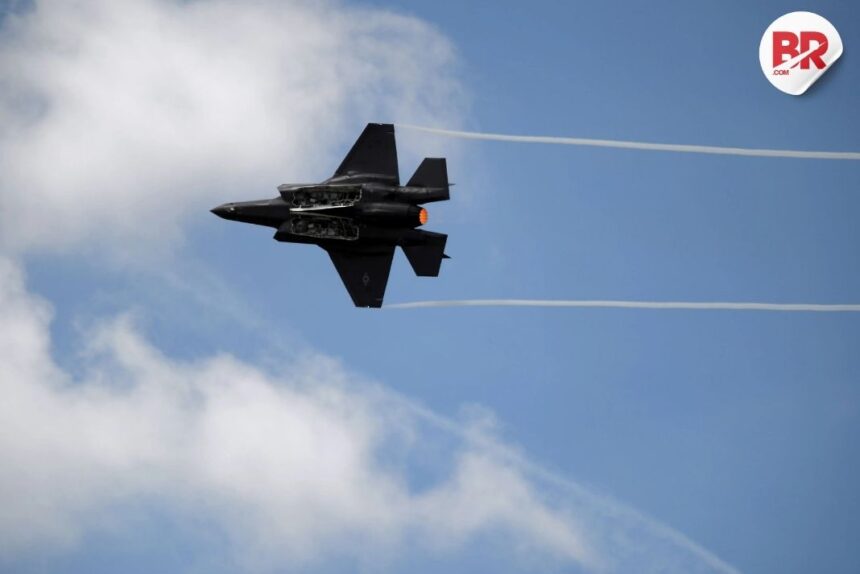
The UK is making a bold military move—one that puts nuclear weapons back in the skies for the first time in over two decades.
This week, Prime Minister Keir Starmer confirmed Britain will purchase 12 U.S.-made F-35A fighter jets, capable of carrying tactical nuclear bombs. It’s the biggest upgrade to the UK’s nuclear deterrent since the Cold War.

This isn’t just about buying planes. It’s about changing Britain’s entire defence game. For years, the UK relied solely on its Trident submarines to carry nuclear arms. But after two failed Trident missile tests—one in 2016 and another just last year—trust in that system has been shaken.
Now, the country is turning to the skies.
Why This Matters Now
“The world isn’t safe anymore,” Starmer said. “We can’t take peace for granted.”
He’s not wrong. With Russia growing more aggressive and the U.S. slowly stepping back from its role as Europe’s protector, the UK is stepping up.
These new jets give Britain a dual-capable force—meaning they can carry regular weapons or tactical nuclear weapons. Tactical nukes are designed for use in battlefields, not just long-range destruction.
This move also brings Britain back into a closer alignment with NATO allies like the U.S. and France, who already have land, sea, and air-based nuclear options.
Not Just About Firepower—It’s Jobs Too
Buying these jets isn’t just a military statement. It’s an economic one.
According to Downing Street, the purchase will support around 20,000 jobs across the UK. That’s defence spending with a domestic bonus.
Where Will the Nukes Come From?
The UK no longer stores U.S. nukes on its soil. The last of those were removed in 2008. So if these jets are going to carry nuclear weapons, they’ll likely need U.S. supply—specifically the B61 tactical nuclear bombs.
Still, this shift means Britain could once again deliver nuclear weapons by air if war ever breaks out.
Preparing for a New Age of Conflict
The UK has committed to raising its defence and security spending to 5% of GDP by 2035. It’s a clear signal: the government believes the peace-time era is over.
NATO Secretary General Mark Rutte praised the move, calling it “another robust British contribution to NATO.”
This isn’t just a hardware upgrade—it’s a strategic shift. Britain is gearing up not just for defence, but for deterrence. With these new jets, nuclear weapons aren’t just underwater anymore—they’re airborne again.
Also Read B-2 Stealth Bombers: Why the US Chose B-2 Stealth Bombers for the Iran Nuclear Attacks?












